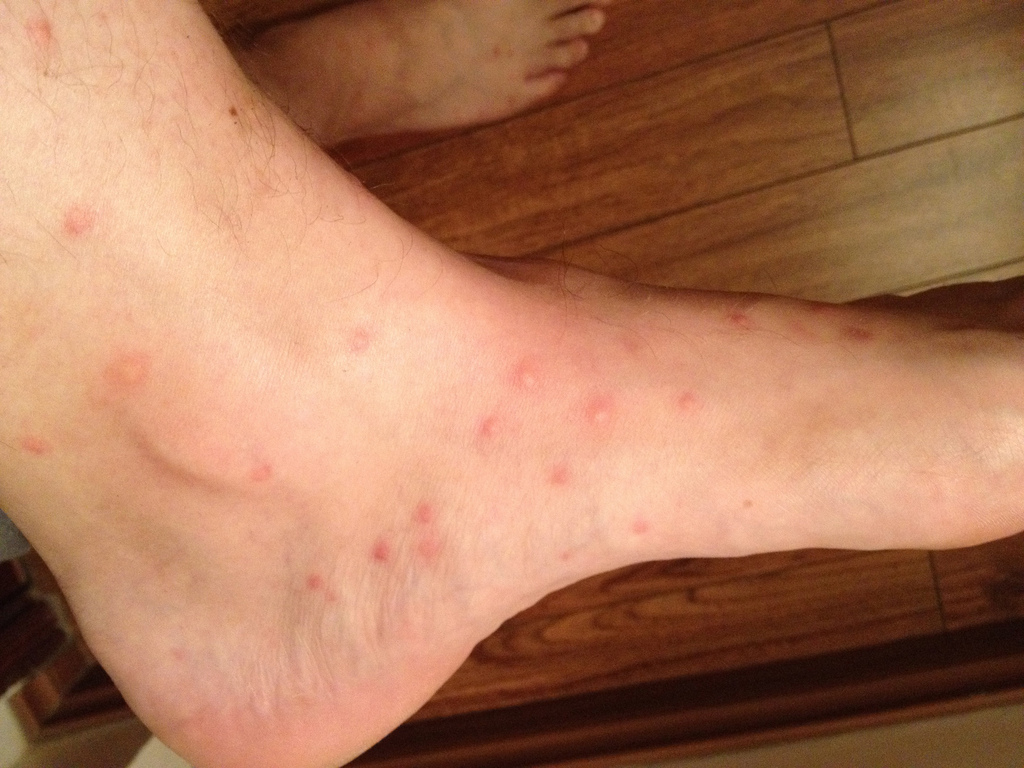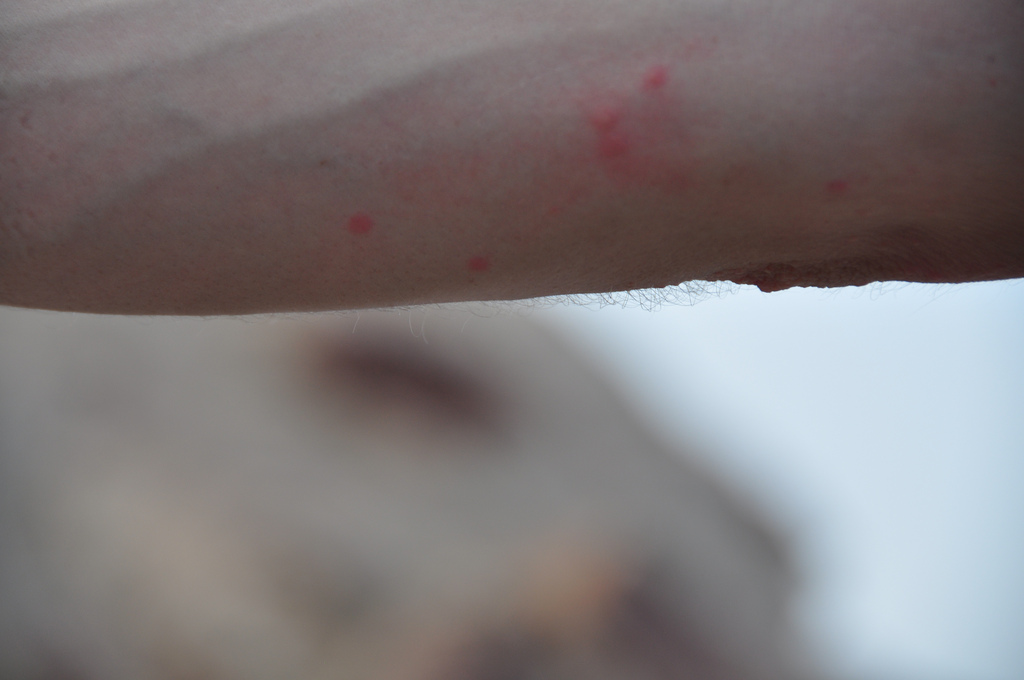Fleas don’t discriminate when choosing a warm-blooded host. While most fleas prefer the warm, hidden area of a dog’s coat, these parasitic pests will certainly jump at the opportunity to feast on your blood as well.
Flea bites on humans can result in a wide range of health problems, which is why it’s important to treat them in a timely manner. Whether you’re suffering from a single bite or a hundred, you can use the following tips to encourage them to heal faster while reducing the chance of infection.

Flea bites on foot: photo by Michael Voelker.
Don’t: Scratch Them
I know it goes against your natural instinct, but you must refrain from scratching your flea bites. Depending on how your body responds, the bite may begin to turn red and inflamed, creating small pimple-like bumps on the affected area. Scratching over these bumps could tear the skin off, leaving them vulnerable to infection. The bottom line is that you should avoid scratching or even rubbing your flea bites until they are fully healed.
Don’t: Assume Fleas Will Go Away After Feasting
Contrary to what some people may believe, fleas won’t stop feasting on a host’s blood just because they are full. Instead, they literally gorge themselves until they are no longer physically able to hold anymore blood. To make matters worse, fleas will continue to defecate on their host while feasting on its blood.
Don’t assume that fleas will go away just because they’ve bitten you. Nine out of ten times, they will remain nearby to try for seconds. If you’re suffering from severe flea bites, you need to take immediate action to remove these pests from your home. You can learn more about flea treatment techniques here at fleabitesonhumans.com.

Flea bites on arm: photo by jesssse.
Do: Use an Antihistamine
One of the biggest problems associated with flea bites on humans is the possibility for an allergic reaction. When a flea bites into a host, such as you, it releases a combination of amino acids, aromatic compounds, polypeptides, and phosphorus, all of which may trigger an allergic reaction. While there’s no way to completely avoid flea allergies, you can minimize their effects by taking an oral antihistamine.
Do: Use an Antibiotic Ointment
After noticing a flea bite on your skin, you should immediately clean the area with soap and water, followed by placing a small amount of antibiotic ointment on top. Not only will this protect against infection, but it will also subside some of the itching and burning sensations caused by the bite.
